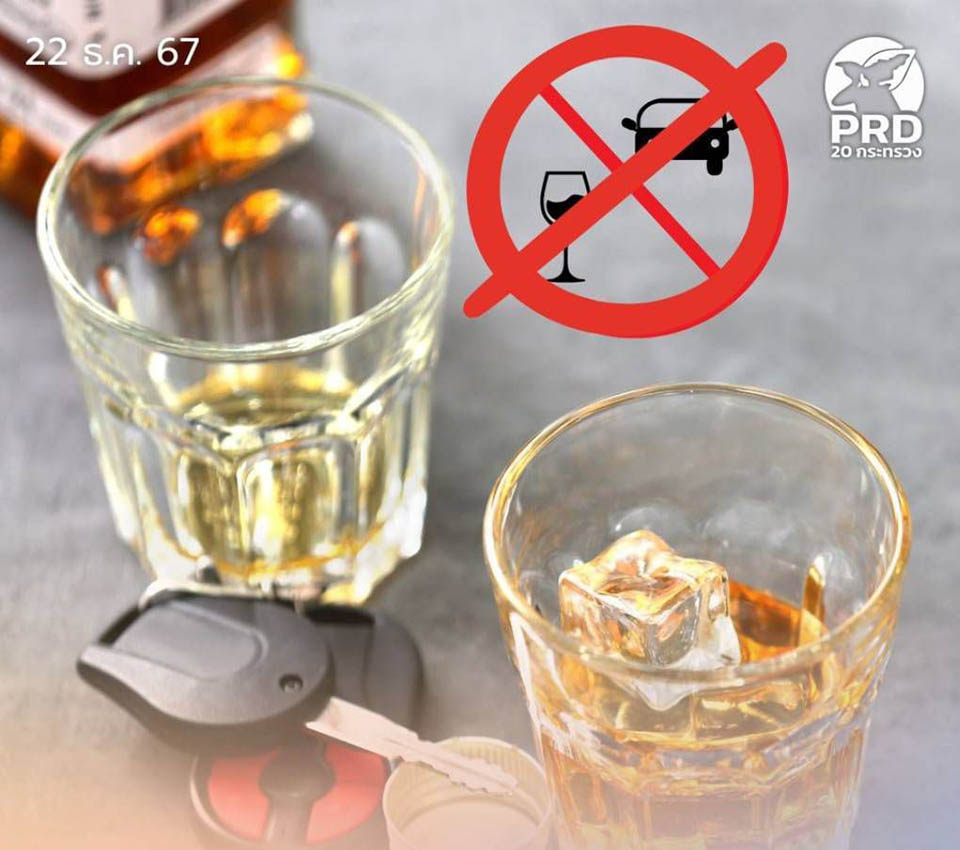
BANGKOK, Thailand – In a bid to reduce road accidents during the New Year 2025 celebrations, the Thai government has launched the “Don’t Drink and Drive, Get Home Safely” campaign. The initiative aims to raise awareness among citizens about the dangers of impaired driving and promote adherence to traffic laws to prevent injuries and fatalities typically associated with the festive season. Authorities are also working to enforce stricter traffic regulations and conduct random sobriety checkpoints during the holiday period.
The campaign is designed to target the spike in road accidents that occur during holidays when alcohol consumption is prevalent, particularly among younger drivers. Public service announcements, increased police patrols, and educational outreach are some of the key components of the initiative.
Why the Campaign May Struggle to Work in Thailand
While the campaign has noble goals, several factors may hinder its effectiveness in Thailand:
Cultural Attitudes Toward Drinking: In Thailand, social drinking, especially during festivals, celebrations, and gatherings, is a deeply ingrained cultural practice. The normalization of alcohol consumption in social settings can make it challenging for people to take the campaign seriously, leading to resistance or disregard for the anti-drinking message.
Weak Enforcement of Traffic Laws: Despite strict traffic regulations, enforcement remains inconsistent. Traffic police are often overwhelmed by the sheer volume of vehicles on the road, and corruption or a lack of resources can reduce the effectiveness of sobriety checkpoints. The law may exist, but it is not always enforced to its full extent.
Lack of Public Transportation Options: One of the significant challenges in Thailand is the lack of reliable and accessible public transportation, especially during late-night hours. Without a robust alternative to driving, many people resort to driving while intoxicated because they have no safe way to get home. This issue is particularly pronounced in areas outside of Bangkok, where public transit infrastructure is limited.
Unrealistic Expectations and Peer Pressure: During major holidays like New Year, peer pressure and the festive atmosphere can lead individuals to ignore the risks of drinking and driving. Many people believe that they can drive safely even after consuming alcohol, despite the fact that impairment can occur well below the legal limit. This overconfidence contributes to the problem.
Economic Factors and Lack of Alternatives: For many individuals, especially in lower-income communities, taking a taxi or using a ride-sharing service may not seem financially viable, especially during peak holiday times when prices surge. This economic barrier leads many to choose the risky option of driving home, even if they are impaired.
Distrust in Government Initiatives: There is often skepticism in the public’s perception of government campaigns, especially if they believe the campaigns are simply temporary measures. Without consistent follow-up actions and visible changes, such initiatives may not inspire long-term behavioral change.
While the “Don’t Drink and Drive, Get Home Safely” campaign is a step in the right direction, it faces several deep-rooted challenges in Thailand. Cultural factors, inconsistent enforcement, limited transportation options, and economic barriers all contribute to the ongoing problem of impaired driving. For such campaigns to be truly effective, they must be paired with stronger infrastructure, better enforcement, and cultural shifts that prioritize road safety.










